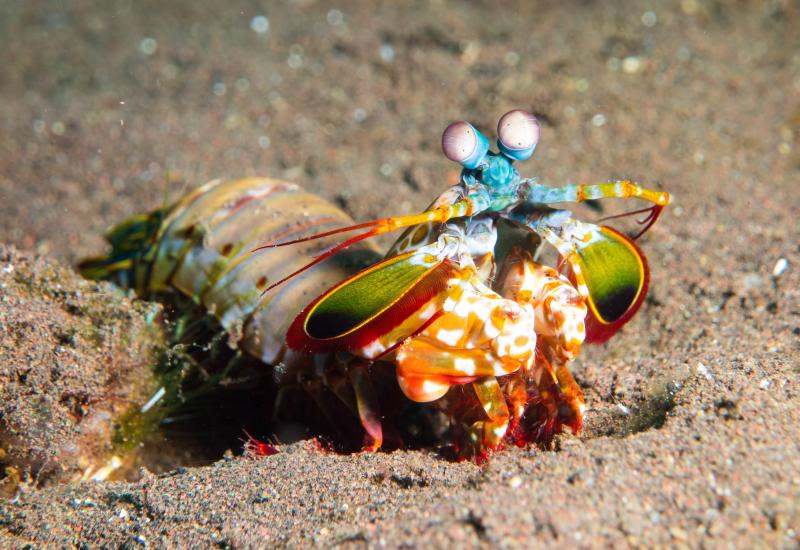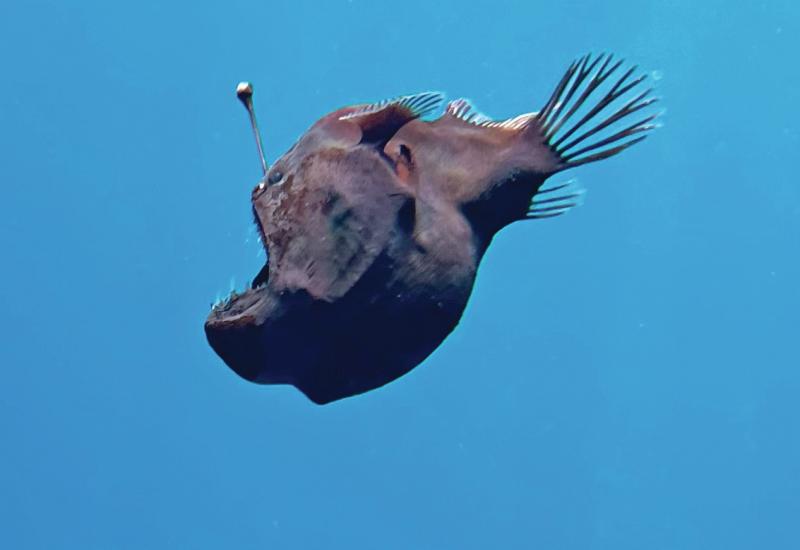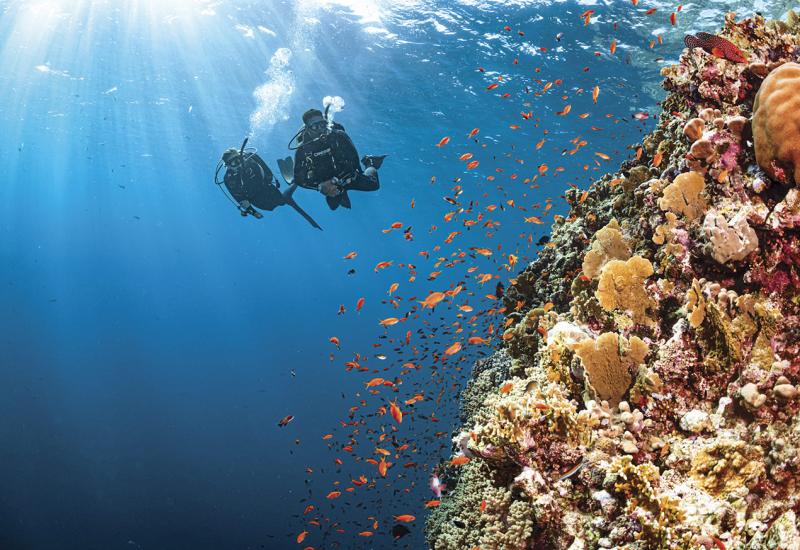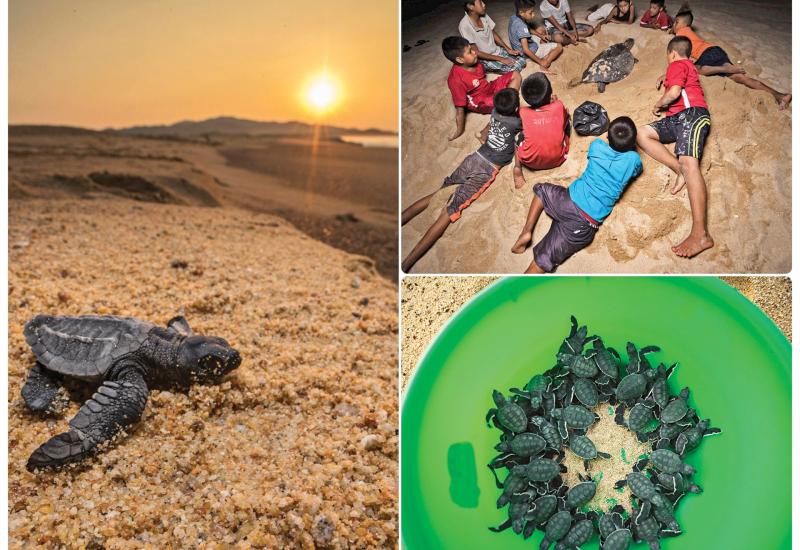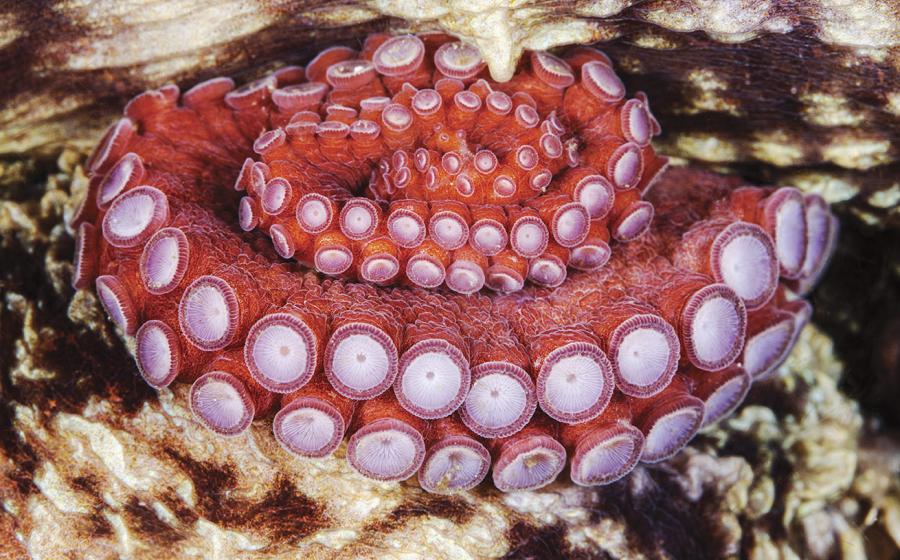How Creativity is Pulling One Galápagos Scuba Shop through COVID
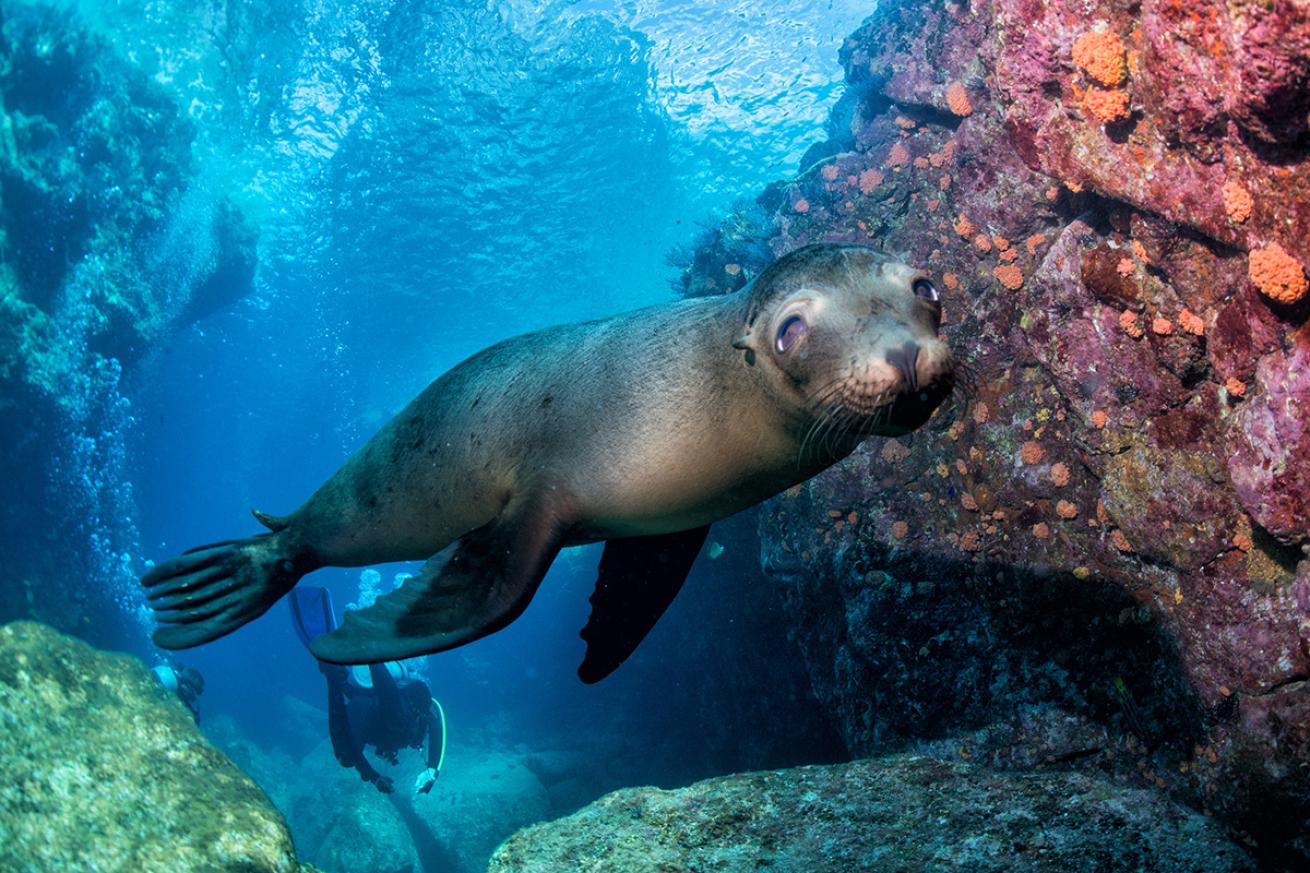
Andrea IzzottiScuba Iguana wants its comeback to bring the community with it.
When pandemic shutdowns swept the globe, some regions felt the blow harder than others. The isolated Galápagos islands, with approximately 600 miles of sea between it and mainland Ecuador, suffered some of the harshest economic conditions in the region. About 95 percent of the Galapageño population relies on tourism, so when all flights to the archipelago halted last March, resident income spluttered as well.
Running a dive operation in the Galápagos is no straightforward task, even outside of COVID. Insurance, licensing fees, salaries, and National Park permit costs add up quickly given the park’s sequestered location.
Put simply, nothing is simple, even in the best of times. And a pandemic is anything but the best of times. But Scuba Iguana, a local dive operator, has pulled out all the stops to rebound, bringing the community along with them.
The Challenges Mount
For decades, local cruise ships have funneled customers to Scuba Iguana because strict licensing rules and insurance regulations prohibit diving on their own ships. As most ships cancelled all trips in 2020, Scuba Iguana lost a huge chunk of its customers and had no way to know when sailing would pick back up. Metropolitan Touring, the oldest and largest Ecuadorian tour operator, resumed sailing far-from-full ships in July 2020, along with a few very small local operators but the majority of cruise companies cancelled all 2020 trips and are only now beginning to get back on the water. Many operators still haven’t returned.
Scuba Iguana used to receive 14 divers per day; but until this spring, it was lucky to have five divers in a week. Given the significant transportation costs associated with land-based diving in the Galápagos (which requires an hour-long drive to the port then an hour-plus boat ride to the dive site), it’s simply not cost-effective for dive companies to go out with only one or two customers. According to Scuba Iguana dive instructor, Claudia Molina, if there are not at least three people for an outing, she’ll give the booking to another shop so her company doesn’t take a loss. Scuba Iguana was aiming to work these out as two-way partnerships with other local operators, but found itself referring customers to competitors on a near-weekly basis.
The dozen salaried employees with benefits that used to staff the shop was paired down to one salaried employee who works with a few freelance dive instructors.
When Times Get Tough, the Tough Get Creative
Instead of cutting corners with multiple boats, Scuba Iguana decided to renew the permit of only one of their boats this spring in order to keep fleet costs down. It has also worked out a partnership with Finch Bay Galapagos Hotel, an eco-resort in Puerto Ayora named by National Geographic as “one of the most unique lodges in the world.” As the only hotel in Santa Cruz with beach access, it’s in a unique position to explore shore-based snorkeling and diving experiences that don’t require a two-hour commute to a dive site.
Scuba Iguana co-founder, Matthias Espinosa, says he is working with the Finch Bay to develop an entry-level dive offering along the south shore of Santa Cruz island that would eliminate the need to cross the entire island for dives. Not only will this cut down on travel time and costs for Scuba Iguana and its customers, but the reduced amount of fuel needed to power cars and speedboats is a win for the environment.
There are signs the international market is reviving. Ninety percent of the Galápagos’ local population is fully vaccinated — the Ecuadorian government prioritized vaccine distribution to the islands in an effort to revive the country’s tourism industry — and vaccination rates are growing in the United States. With this, Scuba Iguana has seen the return of American travelers seeking private charters, a trend Molina believes is likely to stick around. Many cruise operators have also recently resumed sailing, with most expected to return by this fall.
But Scuba Iguana is not staking its resurgence on divers flocking from abroad. The dive shop is now eyeing the untapped market of Ecuadorian divers. Both Scuba Iguana and Finch Bay Hotel say that since domestic tourism began creeping back last fall, smaller crowds of largely Ecuadorian visitors have made their way to the region.
Getting locals engaged in diving will overhaul how Ecuadorians think about Galápagos diving, says Espinosa. After more than 10,000 dives in the Galápagos, he has become much more interested in “educating locals and guests about the Galápagos' fragile underwater ecology.” Ecuadorian clients, he says, tend to mostly be interested in visiting the beaches and seafood restaurants in Galápagos, not diving.
Not only will he need to convince potential customers to consider dives that explore natural selection, marine ecosystems, endemic species identification, and the peculiarities of the local fish, Mathias will have to change his team's thinking. Like all the other dive operators in the region, his team has also been “conditioned to offer dives with schools of hammerheads."
Scuba Iguana’s leadership is up for the challenge.
Another way Scuba Iguana plans to entice Ecuadorians to get in the water is by emphasizing free diving opportunities. According to Molina, the dive instructor, “Ecuadorians tend to be more interested in free diving and relatively few are licensed for proper scuba diving anyway”. Like shore-based scuba diving, free diving can be done near the shore so it requires less time, fuel, and money, making the activity more appealing to Ecuadorians with little to no underwater experience.
Ecuadorians are also more likely than international travelers to make repeat visits to the islands so a positive diving experience could inspire them to return in the future. Getting Ecuadorians more interested in scuba diving would not only help Galápagos in the short term, but Molina sees a future where it also transforms the experiences of domestic travelers and how they view the country’s least-populated province.

